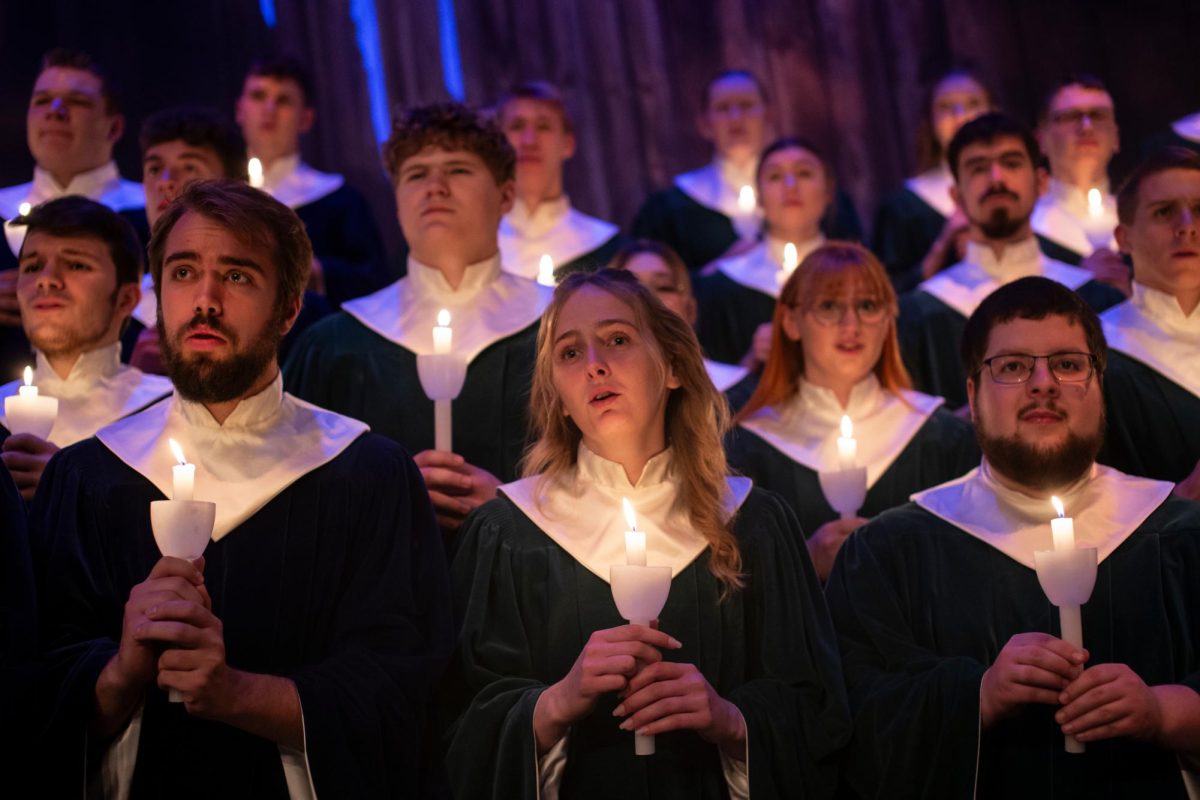Luther College is undoubtedly renowned for its musical ensembles and its choral groups in particular. However, talented students who flock to the college in hopes of potentially completing music majors or minors are met with a strange situation. While those seeking music degrees are required to be in an ensemble for several semesters to fulfill graduation requirements, their involvement does not warrant any academic credit.
Freshmen in both Aurora and Norskkor choirs dedicate three hours weekly to rehearsals and additional time outside of class to performances without earning college credit. Similarly, Cathedral and Collegiate Choirs also meet for three hours weekly and are not recognized with any credit. Even the prestigious Nordic Choir, which meets for five hours a week and holds students to an arguably higher standard, earns no academic acknowledgement.
While I cannot personally attest to the expectations surrounding instrumental ensembles on campus, they similarly do not obtain credit for their participation either, despite meeting several times a week for multiple hours and performing.
A key factor that appears to be left unrecognized by faculty is an individual’s rehearsal and practice outside of their ensemble’s appointed time. With the approach of performances at campus concerts, chapel events or invitational occasions for organizations like the American Choral Directors Association, students are encouraged to dedicate additional time outside of class. Directors suggest that musicians do their own rehearsing, learn their parts independently, as well as attending sectionals student leaders might schedule.
This expectation of ‘assignments’ and study outside of a class is not unlike any other accredited course on campus, yet choral participation unfortunately does not garner credit.
Several other notable Iowa colleges award credits for participating in their ensembles, despite the fact that one may reason they require less dedication or time from their students. These include Iowa State University, the University of Dubuque and the University of Northern Iowa. According to the respective institution’s pages, all grant students at least one credit per ensemble per semester. Even Wartburg College awards a quarter of a credit as compensation for participating in their choirs.
Students at these universities are compelled to achieve academic and personal excellence by credits, whereas Luther students are driven by social responsibility and stress. Luther students are motivated by the threat of being removed from their ensemble, rather than academic integrity.
Christmas at Luther is perhaps the best example of underappreciated student effort. Students arrive back from Thanksgiving break to attend a six hour rehearsal. Days of dedication go into rehearsals, performances and behind-the-scenes work for the critically acclaimed holiday celebration. Individuals are expected to take time to prepare ensembles’ robes and candles as well as ensure spaces are organized before and after performances.
It is this atmosphere, lacking of academic recognition, that is more evocative of an extracurricular ensemble.
Certainly, Luther students take immense pride in their artistic and extracurricular endeavors outside of courses. Musicians are undoubtedly proud of their accomplishments and being a part of their respective ensembles. However, if ensemble participation is not garnering credits, then it should be treated as an extracurricular, and less should be demanded of students. This means the syllabus, absence requirements and expectations should be amended.
The current expectations align with treating choir as an academic class, and yet they are not awarded academic credit. If Luther does not want to award academic credit, then choral ensembles should be treated as an extracurricular activity.
Luther College has a reputation to uphold, and the choral faculty has great expectations for their students. Students are expected to approach ensembles with the same professionalism as they would an occupation, even formally requesting to be excused. Students are permitted to be absent from a rehearsal only if they meet the typical course requirements: extreme illness, family emergency, or a Luther College sponsored activity. Despite this, I have heard anonymously from students who were denied absences for medical appointments, certain Luther-sponsored extracurriculars and even personal losses. I have unfortunately encountered many comparable stories and am certain there are many more I have not yet heard. One student was even encouraged to stay at a Christmas at Luther rehearsal after vomiting, which raises some concerns about how the policies are applied.
The standard for students is to be considerate, intentional and mature, but not being given credit for their work is not indicative of this same expectation. Participating in an ensemble as if in an occupational manner begets the idea that students are also treated professionally. Withholding credit for their significant contributions is inconsistent with this professional expectation.
Conversely, one may argue that music major’s course loads are already full and that their schedules are simply too crowded to fit a credit for their involvement in a choral ensemble. Similarly, they may also assert that some students are just in choir for the community or opportunities. However, it stands to reason that if a harried college student is already committing themselves to exerting the extra effort and putting in extensive work, they should be adequately compensated for their dedication.
As a singer, musician and Luther choral ensemble member, I question why we are not respected by faculty and our institution. Luther students take immense pride in their participation in musical ensembles. While being a part of a choral ensemble at Luther College is a great honor, our time and dedication as students requires adequate recognition.







